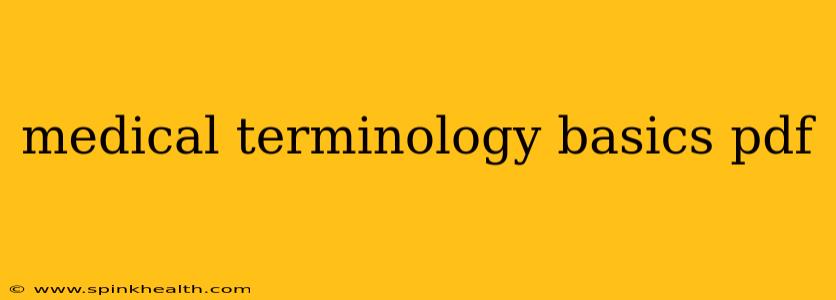Decoding the Doctor: A Beginner's Guide to Medical Terminology
The world of medicine can feel like a foreign land, filled with strange and complicated words. But understanding the basics of medical terminology can empower you, making it easier to communicate with healthcare professionals and navigate your own health journey. This isn't about memorizing a dictionary; it's about learning the building blocks—the prefixes, suffixes, and root words—that unlock the meaning of even the most intimidating medical terms. Imagine unlocking a secret code, revealing the clear language hidden beneath the complex jargon.
This journey begins with a simple story: Imagine you're visiting your doctor. They mention "cardiomyopathy." Sounds scary, right? But let's break it down. We'll uncover the secrets of prefixes, suffixes, and root words, and how combining them unlocks the meaning.
Understanding the Building Blocks
Medical terminology is built on combining these elements:
-
Root Words: These are the core of the word, indicating the body part or condition. Think of them as the foundation of a building. For example, "cardi" refers to the heart.
-
Prefixes: These come before the root word, modifying its meaning. They often indicate location, number, or condition. For example, "tachy-" means fast, and "brady-" means slow.
-
Suffixes: These are added after the root word, usually indicating a procedure, condition, or diagnosis. For example, "-itis" means inflammation, and "-ectomy" means surgical removal.
Let's Tackle "Cardiomyopathy"
Now, let's go back to "cardiomyopathy."
- Cardio-: Relating to the heart.
- Myo-: Relating to muscle.
- -pathy: Disease or suffering.
Therefore, cardiomyopathy means "disease of the heart muscle." See? It's not so intimidating when broken down.
Common Prefixes, Suffixes, and Root Words
Here are some common terms to get you started:
| Prefix | Meaning | Suffix | Meaning | Root Word | Meaning |
|---|---|---|---|---|---|
| a-, an- | without, not | -algia | pain | cardi- | heart |
| endo- | within, inside | -ectomy | surgical removal | gastro- | stomach |
| epi- | upon, above | -itis | inflammation | osteo- | bone |
| hyper- | excessive, above normal | -oma | tumor | nephro- | kidney |
| hypo- | under, below normal | -osis | abnormal condition | neuro- | nerve |
| inter- | between | -pathy | disease, suffering | pulmon- | lung |
| peri- | around | -plasty | surgical repair | hepat- | liver |
| sub- | under, below | -rrhagia | excessive bleeding | dermat- | skin |
Frequently Asked Questions
What are some common medical prefixes and suffixes?
The table above provides a starting point, but there are many more. Resources like medical dictionaries (online or print) offer comprehensive lists. Start by learning the most common ones, and gradually expand your knowledge as you encounter new terms.
How can I improve my understanding of medical terminology?
Consistent exposure is key. Try using flashcards, online quizzes, and medical terminology books. Break down unfamiliar words into their components and use a medical dictionary to confirm your understanding.
Where can I find more information on medical terminology?
Numerous online resources and textbooks are available. Your local library or online medical databases can provide comprehensive resources.
Are there any shortcuts to learning medical terminology?
Focusing on the building blocks is the most effective approach. Mastering the common prefixes, suffixes, and root words provides the foundation for understanding a vast number of terms.
How do I use medical terminology in everyday conversation?
While you shouldn't use overly technical terms with those unfamiliar with medicine, understanding the basics allows you to communicate more effectively with healthcare providers, ask more informed questions, and better understand medical reports or instructions.
By approaching medical terminology systematically, you'll soon find yourself confidently navigating the world of healthcare. Remember, it's a language you can learn, just like any other. With practice and persistence, you'll be decoding medical terms like a pro in no time!

